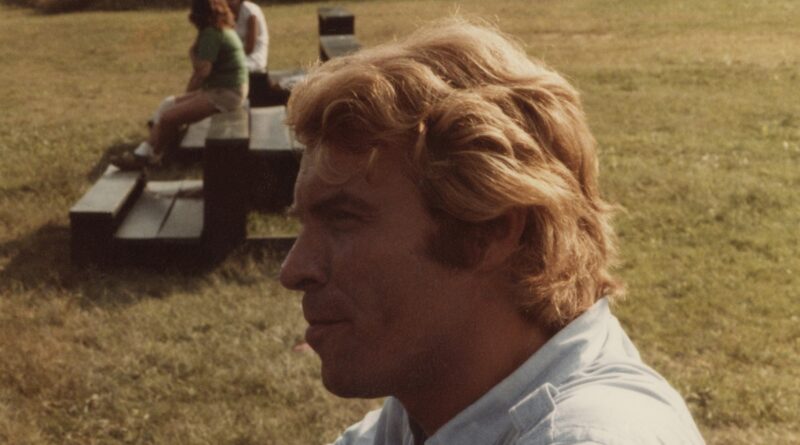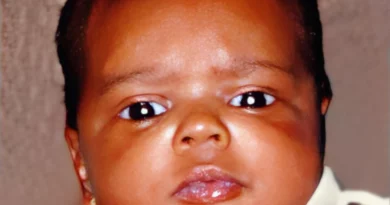Danny Casolaro Death at Sheraton Hotel in Martinsburg West Virginia
Danny Casolaro, an investigative journalist, was found dead in a hotel room in Martinsburg, West Virginia, on August 10, 1991. His death, which was ruled a suicide by local authorities, has sparked numerous conspiracy theories and debates over the years. Many believe that Casolaro was silenced for uncovering a massive network of government corruption known as “The Octopus.” This article delves into Casolaro’s life, his investigation, and the questions that remain unanswered about his death.
Who Was Danny Casolaro?
Danny Casolaro was an American freelance journalist and writer known for his investigative work into government corruption and conspiracies. Born in 1947, Casolaro had a knack for uncovering complex stories that often involved powerful people and organizations. He was particularly drawn to stories that others considered too risky or convoluted.
In the late 1980s, Casolaro began investigating a web of interconnected conspiracies he called “The Octopus.” He believed that these conspiracies were tied to the U.S. government, intelligence agencies, and defense contractors, involving fraudulent financial transactions, software theft, and international arms deals.
The Background: The Octopus Conspiracy
The term “The Octopus” was coined by Casolaro to describe a vast network of corruption that allegedly spanned the globe. The Octopus reportedly involved a variety of players, including government officials, international bankers, military contractors, and organized crime figures. Casolaro’s primary focus was on the Inslaw affair, a legal battle over a case management software called PROMIS (Prosecutor’s Management Information System).
Casolaro believed that the U.S. Department of Justice had illegally appropriated PROMIS and distributed it to intelligence agencies, potentially compromising national security. He also suspected links between the Inslaw affair, the Iran-Contra scandal, and the Bank of Credit and Commerce International (BCCI) scandal, which suggested deeper layers of corruption.
Danny Casolaro’s Investigation Leading to His Death
Casolaro dedicated years to his investigation into The Octopus, gathering information from a variety of sources, including informants, government insiders, and intelligence operatives. In the months leading up to his death, he claimed to have uncovered significant information that would expose the true nature of The Octopus. Friends and family reported that Casolaro was both excited and apprehensive about the impending publication of his findings.
Casolaro often expressed fears for his safety, suggesting that his investigation made him a target for powerful figures. He even instructed friends that if anything were to happen to him, they should be aware that it was related to his work.
Events Leading Up to August 10, 1991
Casolaro traveled to Martinsburg, West Virginia, to meet an unnamed source who claimed to have critical information related to his investigation. He checked into the Sheraton Inn on August 8, 1991, intending to stay for a few days. On the morning of August 10, Casolaro was found dead in his hotel bathtub with multiple slash wounds on his wrists.
The discovery of his body raised immediate suspicion. Casolaro’s notes and documents related to his investigation were missing, and there was no conclusive evidence that he intended to commit suicide. His family was adamant that Casolaro had no history of depression and was not suicidal, insisting that he had been murdered to prevent the release of his findings.
Discovery of Casolaro’s Body in Martinsburg, West Virginia
Casolaro’s body was discovered by hotel housekeeping staff. He was found in a bathtub filled with bloody water, with at least a dozen deep slash wounds on his wrists. Authorities initially ruled his death a suicide, based on the nature of the wounds and the presence of a suicide note. The note, however, raised more questions than answers, with some suggesting it could have been staged.
The local coroner determined that Casolaro died of blood loss caused by self-inflicted wounds, but many who knew him were skeptical of the official verdict.
Official Cause of Death: Suicide or Foul Play?
The official ruling of suicide was immediately challenged by Casolaro’s family, friends, and investigative journalists. Casolaro had reportedly told multiple people that he was close to uncovering significant evidence just days before his death.
Key discrepancies in the investigation, such as missing documents, unanswered questions about the suicide note, and the number and nature of the wounds, fueled suspicions of foul play. The lack of a thorough forensic investigation at the scene also cast doubt on the credibility of the suicide ruling.
Key Evidence and Clues at the Crime Scene
Several pieces of evidence were found at the crime scene that have been the subject of much scrutiny. Casolaro’s belongings, including his briefcase and notes, were missing. Additionally, the wounds on his wrists were deeper and more numerous than typical for a suicide, leading some experts to question whether they were self-inflicted.
The presence of a bloody towel near the bathtub also raised questions about the crime scene’s authenticity, suggesting possible tampering or an attempt to clean up evidence.
Reactions from Friends, Family, and Investigators
Casolaro’s family was deeply suspicious of the suicide ruling from the start, insisting that he had no reason to kill himself. Friends and colleagues also expressed shock, noting that Casolaro seemed determined to complete his investigation and publish his findings. Investigators and journalists who reviewed the case found the evidence inconsistent and believed that Casolaro’s death was part of a larger cover-up.
Casolaro’s Alleged Discoveries and Government Corruption
Casolaro had reportedly gathered evidence that linked The Octopus to high-level government corruption, international espionage, and organized crime. His findings allegedly included proof of software manipulation, money laundering, and covert operations that could have embarrassed or implicated several powerful entities.
Some believe that Casolaro’s discoveries would have exposed a network of corruption extending to the highest levels of government and international banking. Others argue that Casolaro’s theories were overly speculative and lacked concrete evidence.
Controversies Surrounding the Autopsy Report
The autopsy report released by local authorities concluded that Casolaro’s death was a suicide caused by blood loss from self-inflicted wounds. However, independent pathologists questioned the findings, suggesting that some of the wounds were inconsistent with suicide.
Questions about the timing of death, blood splatter patterns, and missing medical records added to the controversy. The family requested a second autopsy, but the findings remained inconclusive, adding to the growing list of unanswered questions.
The Role of the FBI in Casolaro’s Investigation
The FBI was involved in investigating aspects of Casolaro’s claims, particularly regarding the Inslaw case and the alleged misuse of PROMIS software. Despite this involvement, the FBI denied any active role in investigating Casolaro’s death, further fueling conspiracy theories that government agencies were complicit in covering up the circumstances surrounding his demise.
The Inslaw Case Connection and its Significance
The Inslaw case was central to Casolaro’s investigation. The software company accused the Department of Justice of stealing its proprietary software, PROMIS, which was allegedly sold to foreign intelligence agencies. Casolaro believed that the illegal distribution of PROMIS was part of a broader effort to manipulate global intelligence networks.
The Inslaw case remains unresolved, with multiple government investigations failing to fully address the allegations of software theft and misuse. Casolaro’s work on the case is seen as one of the key reasons he may have been targeted.
Unresolved Questions About Casolaro’s Death
To this day, many questions about Casolaro’s death remain unanswered. Why were his notes missing? Who was the source he was meeting in Martinsburg? Why was the crime scene not more thoroughly investigated? These unanswered questions continue to fuel theories that Casolaro was murdered to suppress his findings about The Octopus.
Conspiracy Theories and the Continuing Search for Truth
Casolaro’s death has become a symbol of the dangers faced by investigative journalists. Numerous conspiracy theories have emerged over the years, suggesting that he was killed by government operatives, intelligence agencies, or other powerful entities implicated in The Octopus.
Despite the passage of time, the search for answers continues, with some investigators still trying to piece together the true extent of Casolaro’s findings and the circumstances of his death.
The Legacy of Danny Casolaro’s Work and Death
Danny Casolaro’s death is a stark reminder of the risks associated with investigative journalism, especially when confronting powerful interests. His work on The Octopus remains a focal point for those interested in government transparency, corruption, and conspiracy theories. While Casolaro may never receive the justice his family and supporters seek, his dedication to uncovering the truth continues to inspire new generations of investigative journalists.
Discover more from City Towner
Subscribe to get the latest posts sent to your email.




